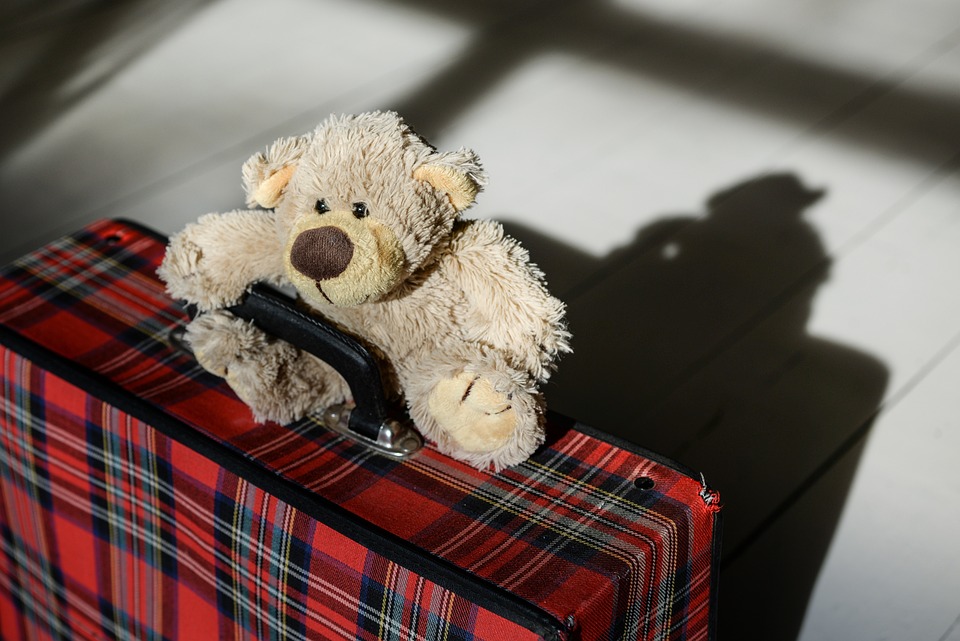U.S. Visa for a Child

Features of obtaining a U.S. visa for children over 14 years old
A U.S. visa for a child is typically issued for up to 3 years, allowing multiple short-term trips to the United States. Considering this and the fact that the number of days at passport control is not specified, visa officers only stamp the entry and exit dates along with the permitted length of stay. The maximum stay for a child in the U.S. on a tourist visa is up to 180 days per visit. In terms of flexibility, this visa surpasses others since children are treated more leniently than adults. Therefore, a child can travel freely with any parent, a school group, or even independently.
Before issuing a U.S. visa for a child, the visa officer carefully reviews all the submitted documents. Like adults, children must have a completed DS-160 form in English and be prepared for an interview. While adults might be questioned about their knowledge of the language, children are not held to the same standard since visa officers understand that a child may not know English at all or may be shy and nervous. Just like adults, children’s biometric data will be collected, so be prepared for fingerprinting.
Given the risks involved, visa center employees take extra care with the safety of children. As such, all interview questions and document requirements are aimed at ensuring that the child is safe during their trip to the U.S. The visa officer wants to know what will happen to the child, who will take care of them, where they will go, and how to contact the accompanying adults in case of any issues. All information will be verified, so any mistakes when providing information are unacceptable. In some cases, parents may be invited to the child’s interview to discuss all aspects of the upcoming trips in more detail.
Features of Obtaining a U.S. Visa for Children Under 14 Years Old
Unlike visas for older children, obtaining a U.S. visa for children under 14 is much easier since the child is traveling with their parents. Children under 14 are not required to provide fingerprints, and the application process can be completed entirely remotely, making it similar to renewing a personal visa.
Given that children under 14 have a relatively long time until they reach this age, there are two formats for obtaining a U.S. visa for children under 14: one that involves a meeting at the embassy and an interview, and one without an interview (if the child is very young or unable to attend).
All necessary documents, including the passport, copies of the birth certificate, travel permissions, copies of the parents’ or accompanying person’s visa, the completed DS-160 form, and the confirmation letter for the interview, can be submitted remotely, meaning no in-person presence is required.
If the child is traveling not with parents but as part of a school group, it is mandatory to have written consent from both parents stating their agreement for the child to travel to the U.S., along with the details of the program the child will be participating in while in the United States.
It’s important to note that requirements may vary by country, so it is advisable to clarify the specific conditions with the call center in your country.
Documents for a U.S. Visa for a Child
The documents required for a U.S. visa for a child are almost the same as those required for adults, especially if the child is traveling for tourism rather than education.
Below is a list of the documents needed to obtain a tourist visa to the U.S. for children.
- Travel Plans or Intentions for a Trip to the United States
Before issuing a visa for a child, the United States wants to know the specific intentions behind the child’s travel. If the primary purpose is tourism, the consulate will request travel plans, including city visits, itineraries, and other details typical for travelers. If the child is visiting a camp, the consulate will be interested in supporting documents from the camp, including invitations. If, for instance, the child is traveling to study at a college or school, this involves a different type of visa, and the visa officer may request additional documents confirming the child’s enrollment and the parents’ ability to financially support the child during their stay in the U.S.
2. School Certificate
If the trip to the U.S. takes place during the school year, the consulate may question why the student is not attending classes and instead traveling to the U.S. Therefore, a certificate from the child’s school might be requested. It is necessary to obtain a certificate from the educational institution where the child studies, provided on the school’s letterhead. Although the U.S. does not have strict requirements for such documents, the minimum information should include the full name of the student, the name of the school, the address, the grade or year of study, and the start and expected end dates of the academic year. In addition to this document, it may be useful to bring along student IDs, report cards, and any other documents proving the child’s current enrollment.
3. Financial Guarantees for the Child’s Support
The U.S. places importance on ensuring that a child traveling to the United States will not face financial difficulties and will be adequately provided for during their stay. Therefore, parents are required to prove that they can financially support their child abroad. The first document of interest to the consulate will be a certificate from the parents’ workplace, including details about their job positions, tenure, and salary. If the parents are entrepreneurs or have other sources of income, these income sources must be documented. If the child will be financially supported by their parents, they must demonstrate that they have sufficient funds to cover the trip and the child’s expenses for the duration of the stay. If a U.S. resident is sponsoring the child, a similar document must be provided by the sponsor. Typically, showing sufficient funds in a bank account to cover the upcoming expenses will satisfy the financial requirements, but it is preferable if the sponsors (including parents) can show bank statements for the past three months.
4. Parental or Guardian Consent for the Trip
This document must be notarized and is a crucial factor in determining whether the child will be granted a visa. The United States takes issues of child safety very seriously and aims to avoid situations where one parent takes the child to the U.S. and the other parent later demands the child’s deportation. Therefore, if the child is accompanied by only one parent, the other parent must provide a notarized consent for the trip. If the child is traveling with a third party, consent from both parents is required. If the child has only one parent or guardian and the other parent has lost parental rights, a document proving the loss of parental rights (or a document showing that the other parent is not involved in the child’s upbringing) should be brought to the visa interview.
Frequently Asked Questions About a U.S. Visa for a Child

Is a visa required for a child to enter the U.S.?
- Yes, even if the child is only 1 year old.
Do I need to pay the consular fee for a child’s U.S. visa, and how much is it for children?
- The consular fee must be paid for every person traveling to the U.S. This means, yes, it must be paid for a child as well. The fee is always $160.
Do parents or guardians need to be present at the interview for the child’s visa?
- Not necessarily. Children can also be accompanied by siblings, nannies, or services that assist with unaccompanied minors. If the child is traveling with a school group, a teacher or group supervisor will act as the accompanying person. The specific requirements depend on individual circumstances, as discussed above.
In whose name should the payment receipt for the visa fee be made in the bank?
- The payment should be made in the child’s name only. This will serve as proof of payment during the registration and interview process. If the payment is made in the parents’ name, the child may not be accepted for processing.
If I have a passport and am considered a competent person, can I travel to the U.S. without parental consent?
- If the country allows independent travel at 16, then yes, from the age of 16, it is possible to travel to the U.S. without parental consent. However, a visa must still be obtained with at least one guardian’s involvement until the age of 18.
What type of visa is needed to accompany a child to the U.S.?
- B1 or B2 visa would be suitable for accompanying a child.
From what age does the child need to be present at the visa interview?
- From 14 years old. Before that age, a visa can be obtained without the child being present. Up to 14 years, parents or guardians represent the child. From the age of 14, the child must attend the interview.
I have a whole family, me, my spouse, and children. How many accounts should be created to register for the interview?
- The consulate allows group registration from a single account. This means there’s no need to create multiple accounts; everything can be done from one. This allows all family members to register at once and attend the interview together.
The children and parents have different last names, or one of the parents has a different last name. What should we do if we want to apply together from one account?
- Each person filling out documents, including the DS-160 form, lists specific people as relatives. Even if the last name is different, once all the information is completed, you can present documents proving the relationship at the interview. Just make sure to bring all the necessary documents.
I am the child’s guardian, and we have different last names, but we need to get a U.S. visa for the child. How should this be filled out on the form?
- Initially, the information about the relationship should match what is written on the birth certificate, except in cases where the parents have been stripped of parental rights. A document proving the termination of parental rights and the appointment of a legal guardian is the basis for updating the information in the DS-160 form.
Table of Contents


